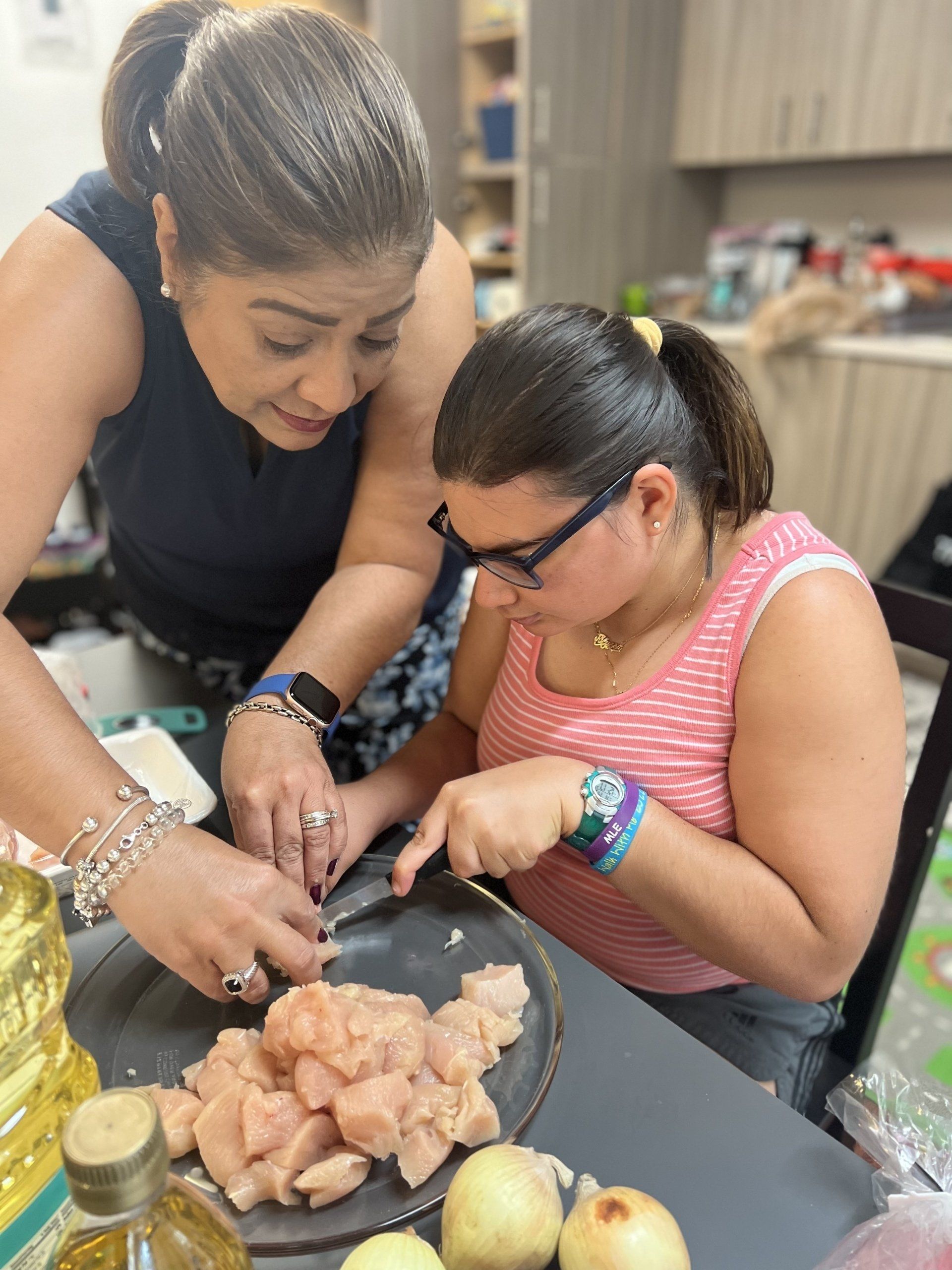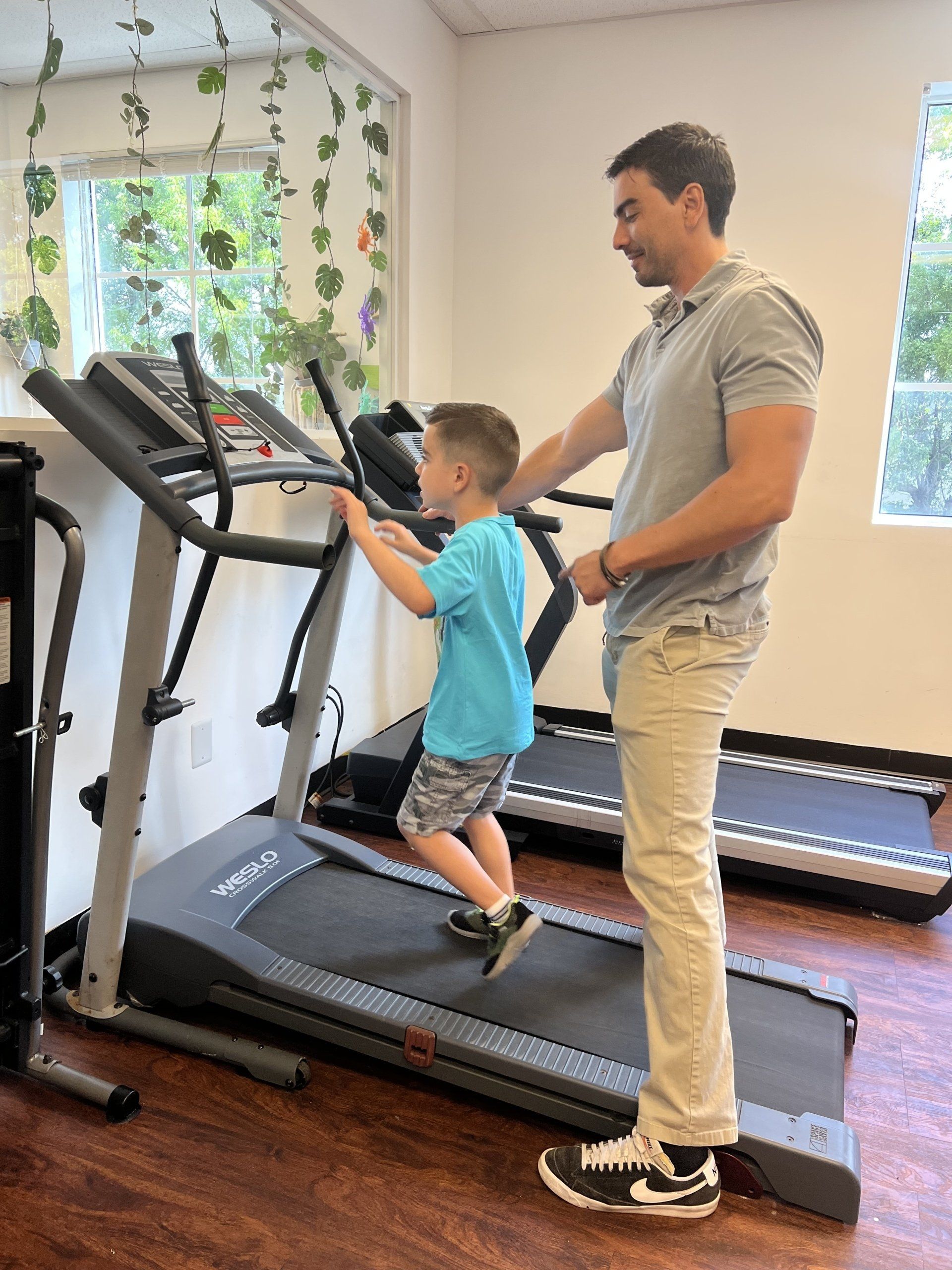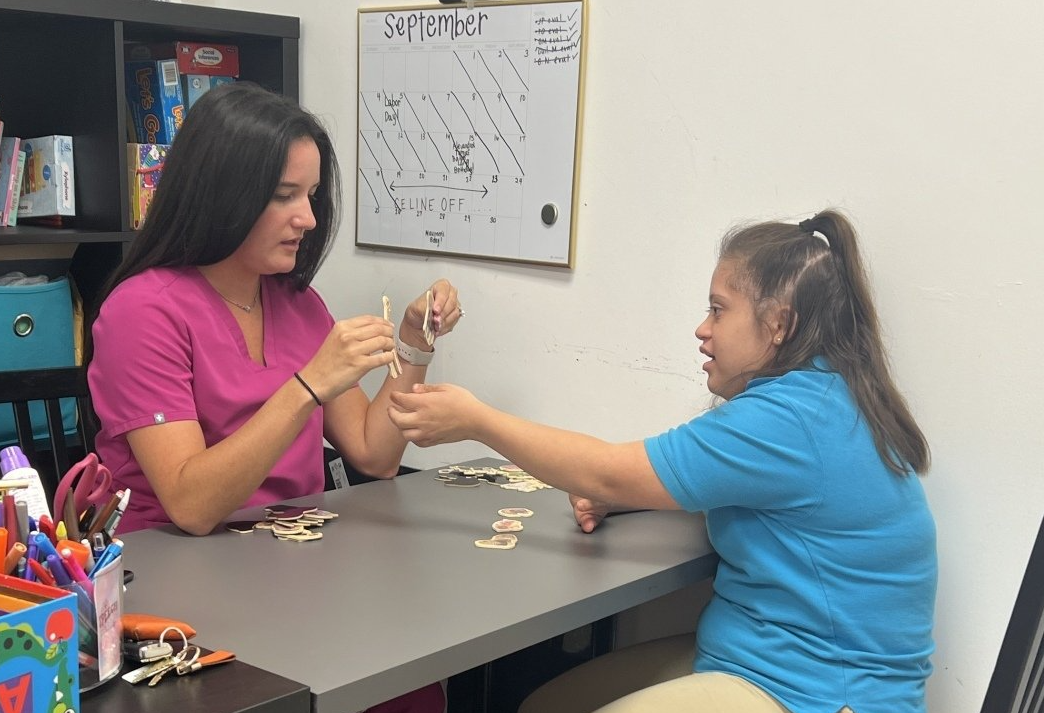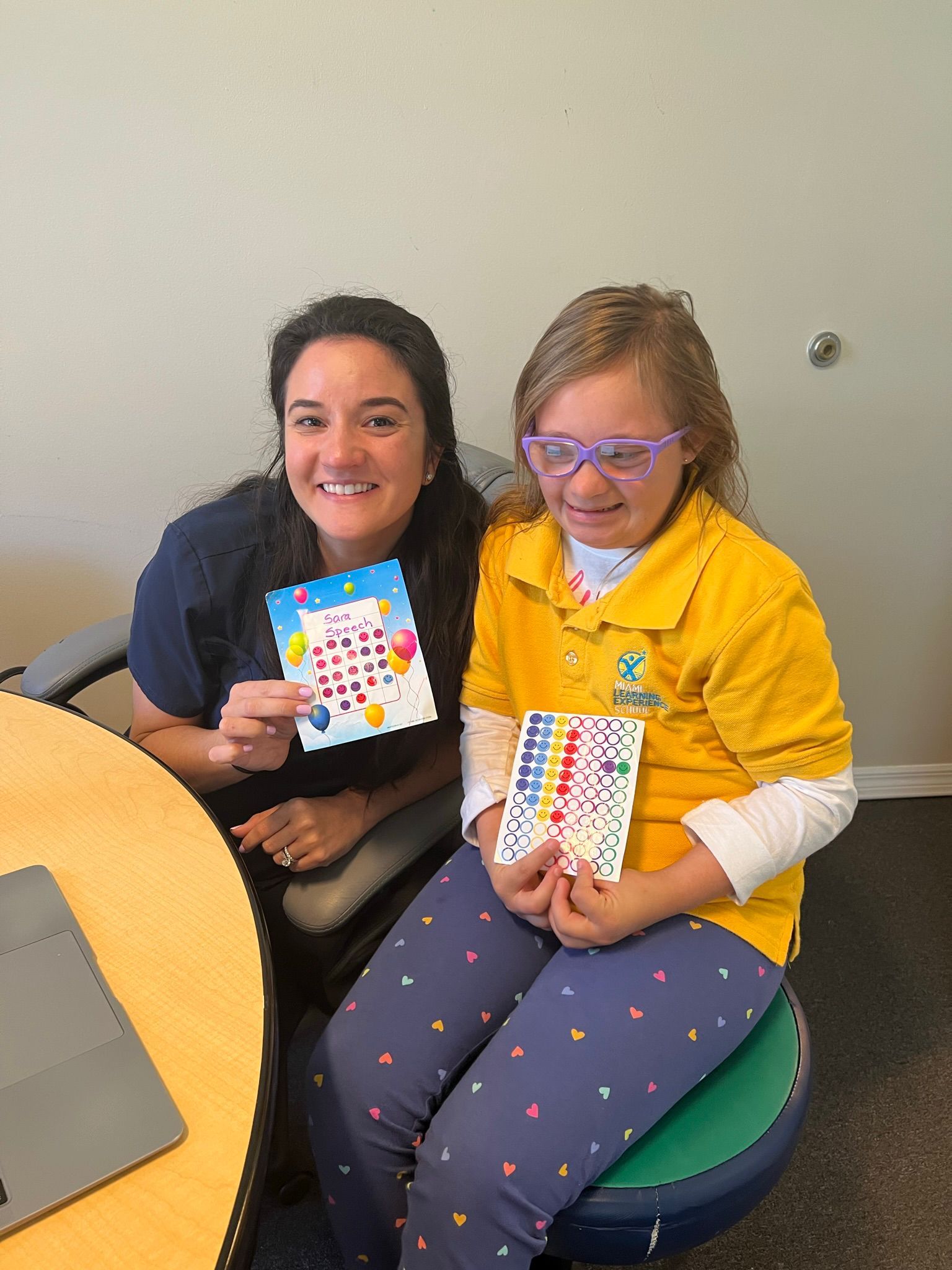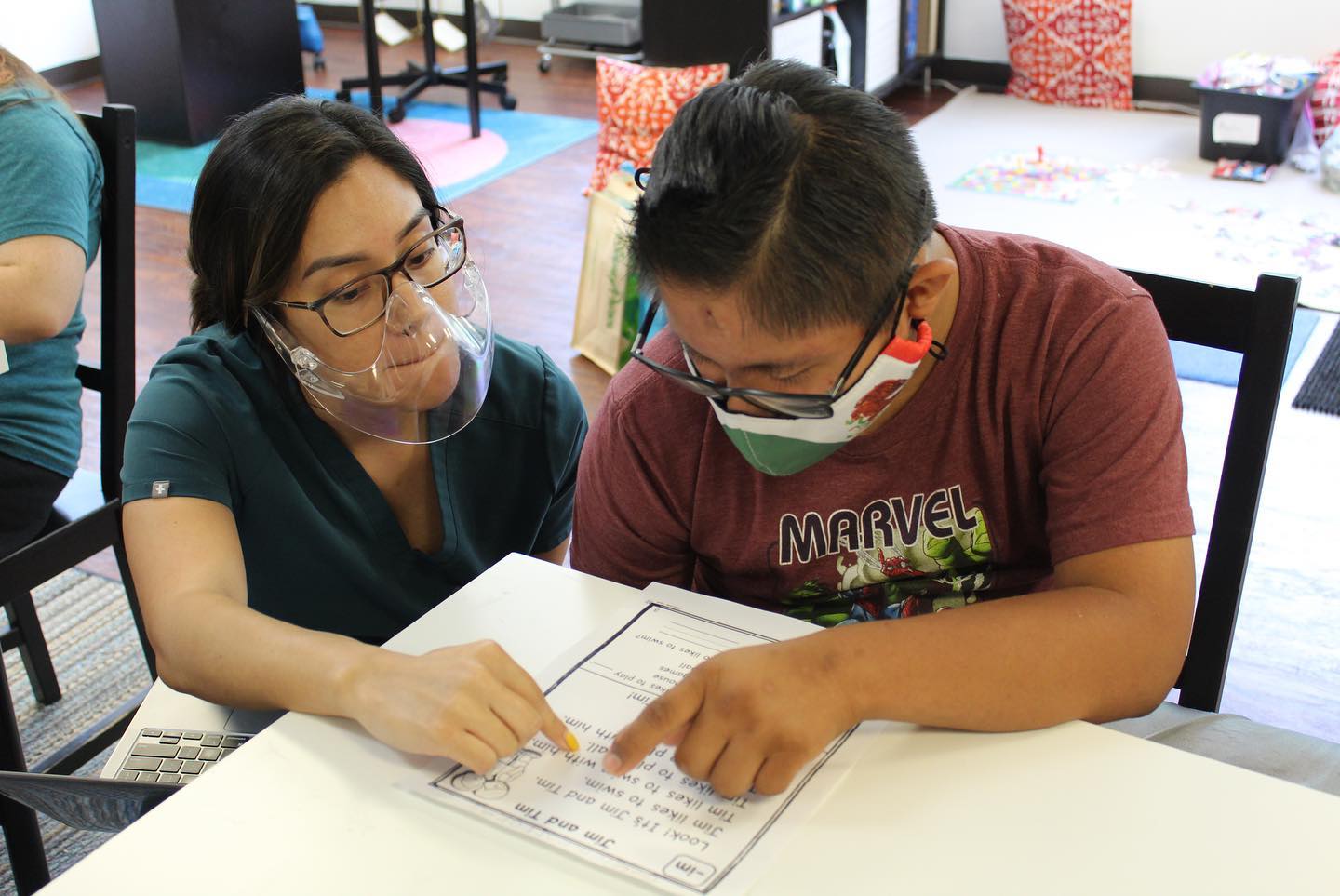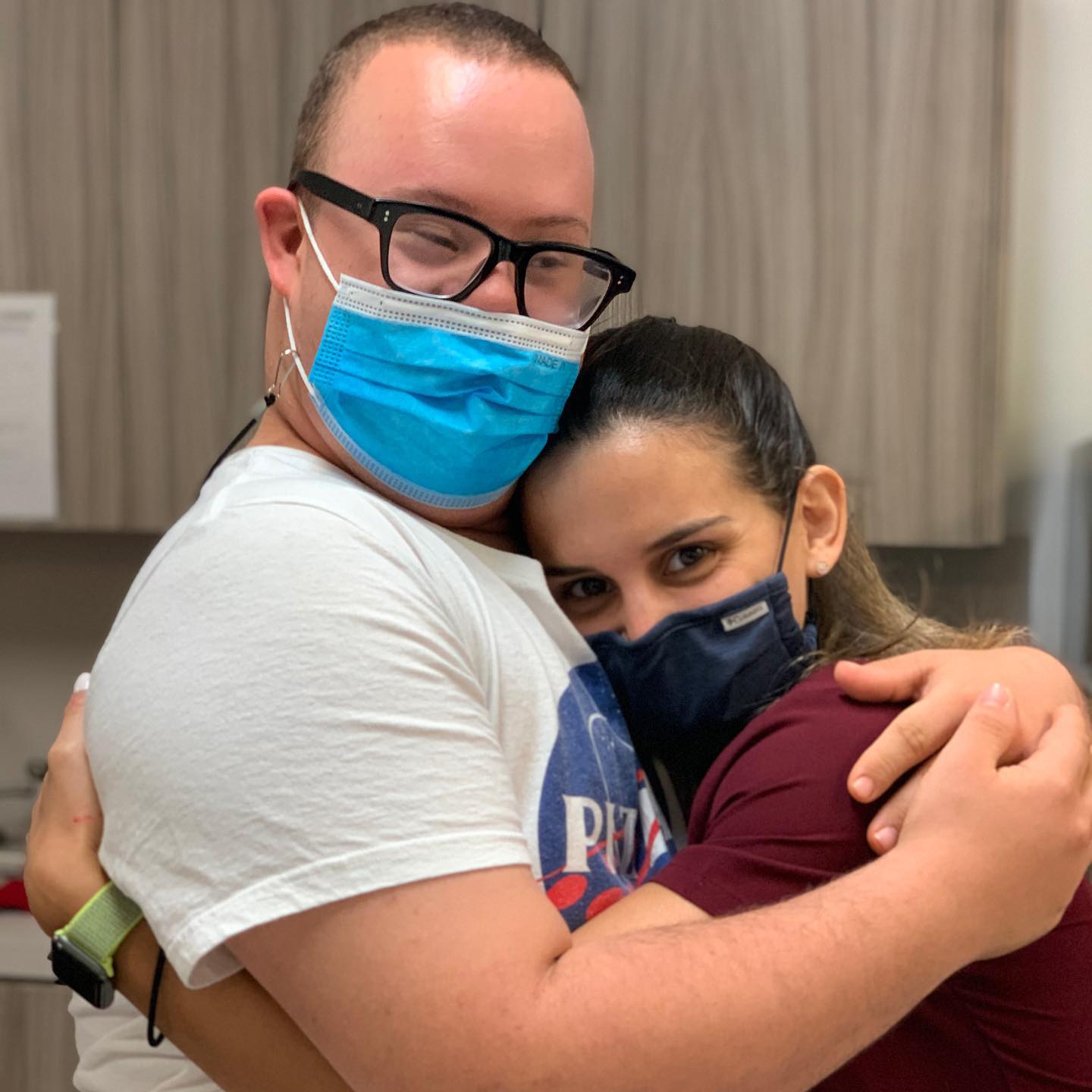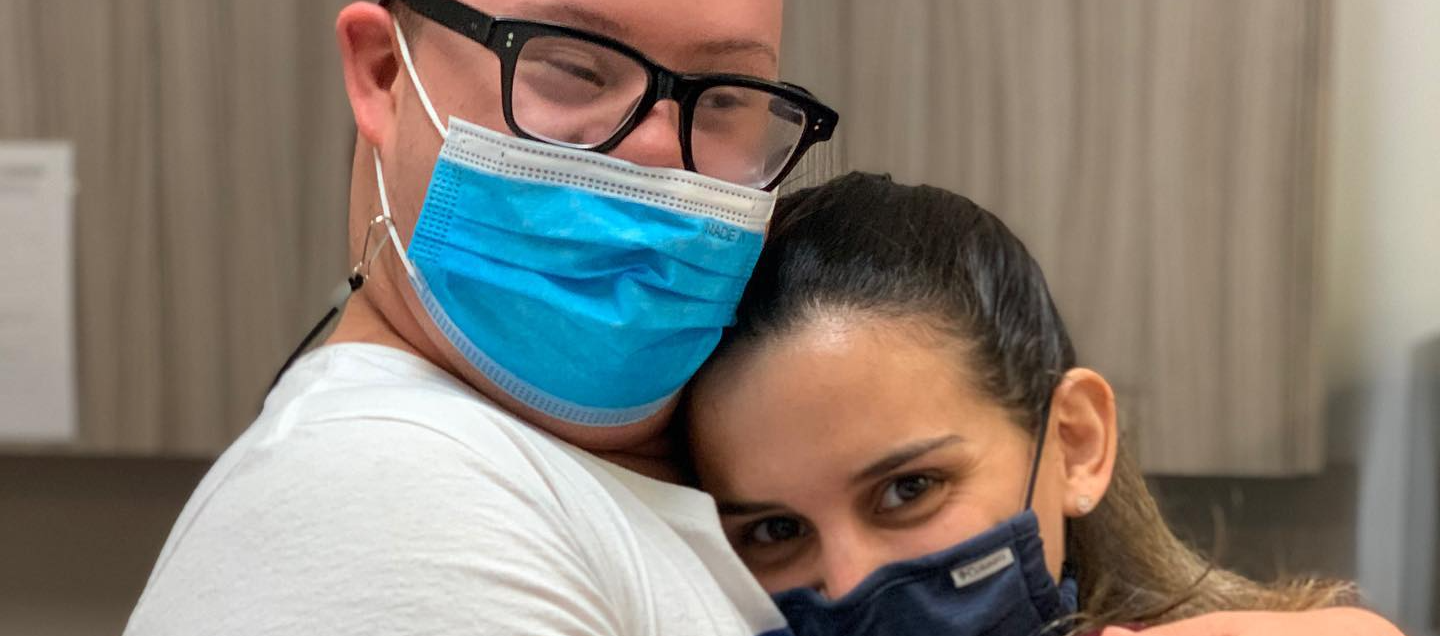
Pediatric Speech Therapy in Miami, Florida
Pediatric speech therapy helps children with conditions that prevent them from having proper functioning of their jaw, tongue, throat and lips. Our therapy aims to continually improve the skills related to these body parts such as verbal and non-verbal communication or all the skills required for proper feeding. Communication is an indispensable skill that must be taught to children in order to help them interact with their surroundings and achieve their goals through life. We teach our children the differences between words and phrases and how to make and use them to communicate correctly.
Proper eating, chewing, and swallowing skills are essential and closely monitored since sometimes they are taken for granted.
Pediatric Speech Therapy in Miami, Florida
Pediatric speech therapy helps children with conditions that prevent them from having proper functioning of their jaw, tongue, throat and lips. Our therapy aims to continually improve the skills related to these body parts such as verbal and non-verbal communication or all the skills required for proper feeding. Communication is an indispensable skill that must be taught to children in order to help them interact with their surroundings and achieve their goals through life. We teach our children the differences between words and phrases and how to make and use them to communicate correctly.
Proper eating, chewing, and swallowing skills are essential and closely monitored since sometimes they are taken for granted.

Therapy Overlap
Our three pediatric therapy disciplines overlap in some areas due to the synchronization of the different parts of our bodies required to properly function as independent individuals. Therefore, our therapy specialists routinely work together to achieve common goals that require different types of exercises to maximize development. An example where speech and occupational therapy overlap is in aiding a child to understand information communicated to them and acting on that message by using their executive functioning skills.

Communication Areas of Improvement
Our speech therapies can cover a vast range of areas for development depending on the child’s specific needs going from learning how to chew properly to learning how to be more fluent. However, communication is a big part of our treatments since it is indispensable for proper functioning of a child in any life stage. There are three main areas that make up what is needed to communicate properly.
Speech Skills
These skills consist of actually making sounds with our mouth. Not only do we need to make sounds, but we also need to articulate, have fluency and have the proper tone of voice when making those sounds. These are skills that some would take for granted but for some children they can be extremely challenging. Fortunately, these skills are learnable and there are exercises specifically designed to make learning them fun and less challenging.
Receptive Language
Being able to say words is one thing but being able to understand and process words coming from other people involves a completely different set of skills. A simple sentence indicating instructions from a game has multiple bits of information that must be understood and connected to assimilate what action must be taken according to what is being said. These skills are trainable with strategic exercises that are scientifically proven to help children better understand what they hear.
Expressive Language
As you can guess, expressive language is the opposite of receptive language. Being the last piece of the communication puzzle, expressive language allows us to combine words and sounds into phrases or sentences that communicate a message to satisfy a need or to effectively share a message. The expressive ability also includes gestures such as pointing and waving. One example of how we can improve expressive language is by using self-talk while doing activities at home in front of our children.
Communication Areas of Improvement
Our speech therapies can cover a vast range of areas for development depending on the child’s specific needs going from learning how to chew properly to learning how to be more fluent. However, communication is a big part of our treatments since it is indispensable for proper functioning of a child in any life stage. There are three main areas that make up what is needed to communicate properly.
These skills consist of actually making sounds with our mouth. Not only do we need to make sounds, but we also need to articulate, have fluency and have the proper tone of voice when making those sounds. These are skills that some would take for granted but for some children they can be extremely challenging. Fortunately, these skills are learnable and there are exercises specifically designed to make learning them fun and less challenging.
Being able to say words is one thing but being able to understand and process words coming from other people involves a completely different set of skills. A simple sentence indicating instructions from a game has multiple bits of information that must be understood and connected to assimilate what action must be taken according to what is being said. These skills are trainable with strategic exercises that are scientifically proven to help children better understand what they hear.
As you can guess, expressive language is the opposite of receptive language. Being the last piece of the communication puzzle, expressive language allows us to combine words and sounds into phrases or sentences that communicate a message to satisfy a need or to effectively share a message. The expressive ability also includes gestures such as pointing and waving. One example of how we can improve expressive language is by using self-talk while doing activities at home in front of our children.

Who Needs Pediatric Speech Therapy?
Speech therapy is not dedicated only to treat medical conditions. There are several reasons why a child would benefit from the exercises of speech therapy in many different cases. These conditions can go anywhere from hearing loss or stuttering to brain injuries or genetic disorders. If your child has difficulty with feeding, articulating, communicating or understanding, then we recommend having an assessment and monitoring of their specific situation. Each kid has a different situation and only specialists can determine a tailored plan if it is necessary.
As with other therapies, our speech exercises are designed to be felt as play by our children but at the same time develop the required skills. A game that requires following directions or practicing sounds helps the child practice their skills while having a fun time. The nature of each activity will vary depending on the child’s current situation and developmental stage. Our therapists assign plans to be practiced at home in combination with what is done during the therapy sessions for improved learning.
Visit Us
West Kendall Office
13155 SW 134th St. Suite 217
